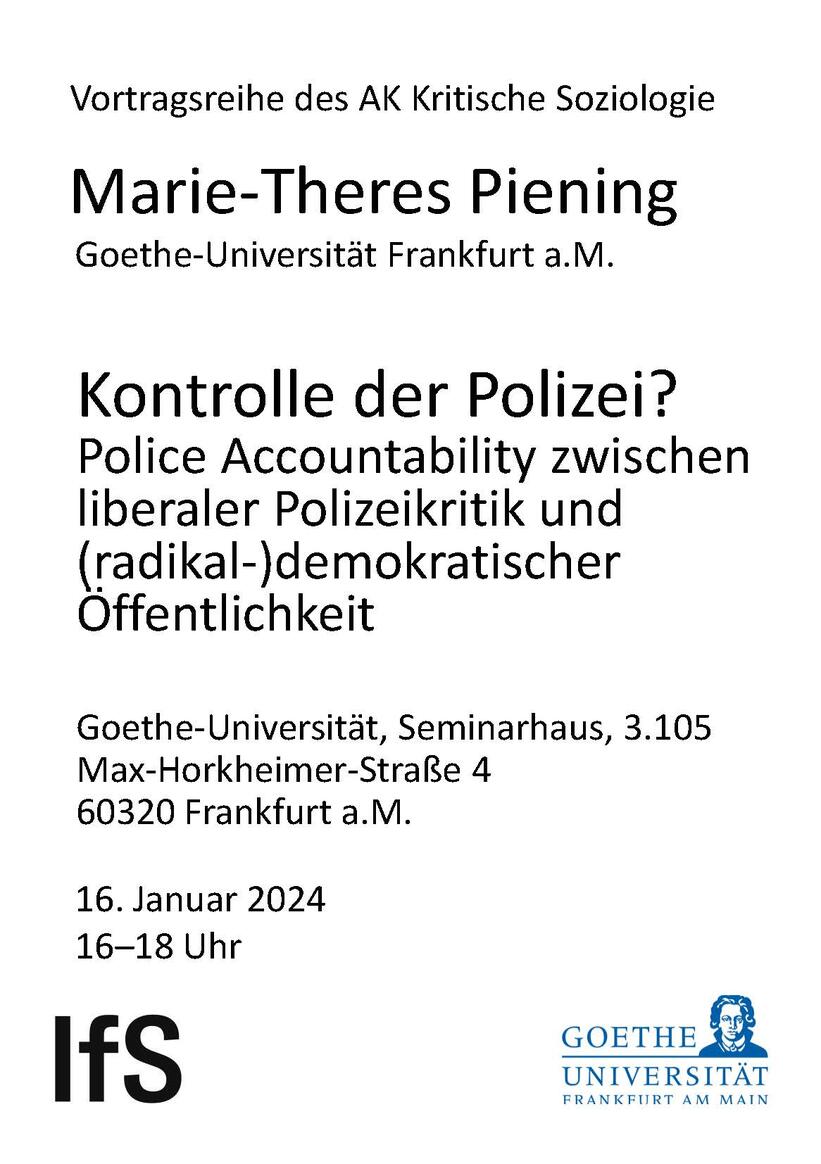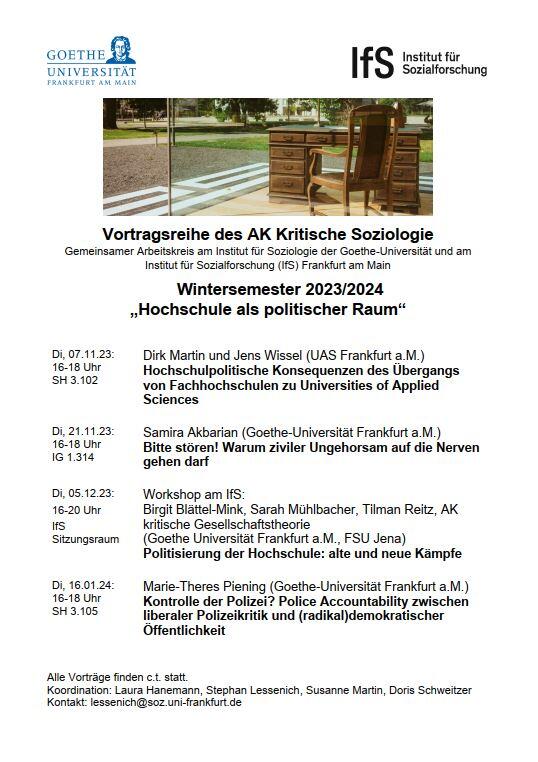Aktuelles
Auf dieser Seite finden Sie aktuelle Meldungen der Professur „Biotechnologie, Natur und Gesellschaft".
Für vergangene Nachrichten besuchen Sie bitte unser Archiv.
Deutsche Forschungsgemeinschaft - DFG || Fixing Futures || Rhein-Main-Universitäten - Goethe Universität Frankfurt am Main - Johannes Gutenberg Universität Mainz || Technische Universität Darmstadt || Julia Rijssenbeek || Marco Tamborini || Josef Barla || Christoph Hubatschke || Gabriele Gramelsberger || Louisa Estadieu || Fiorella Battaglia || Steven Gonzalez Monserarte || Dominika Lisy || Hannah Link
Flyer - Information & Programm
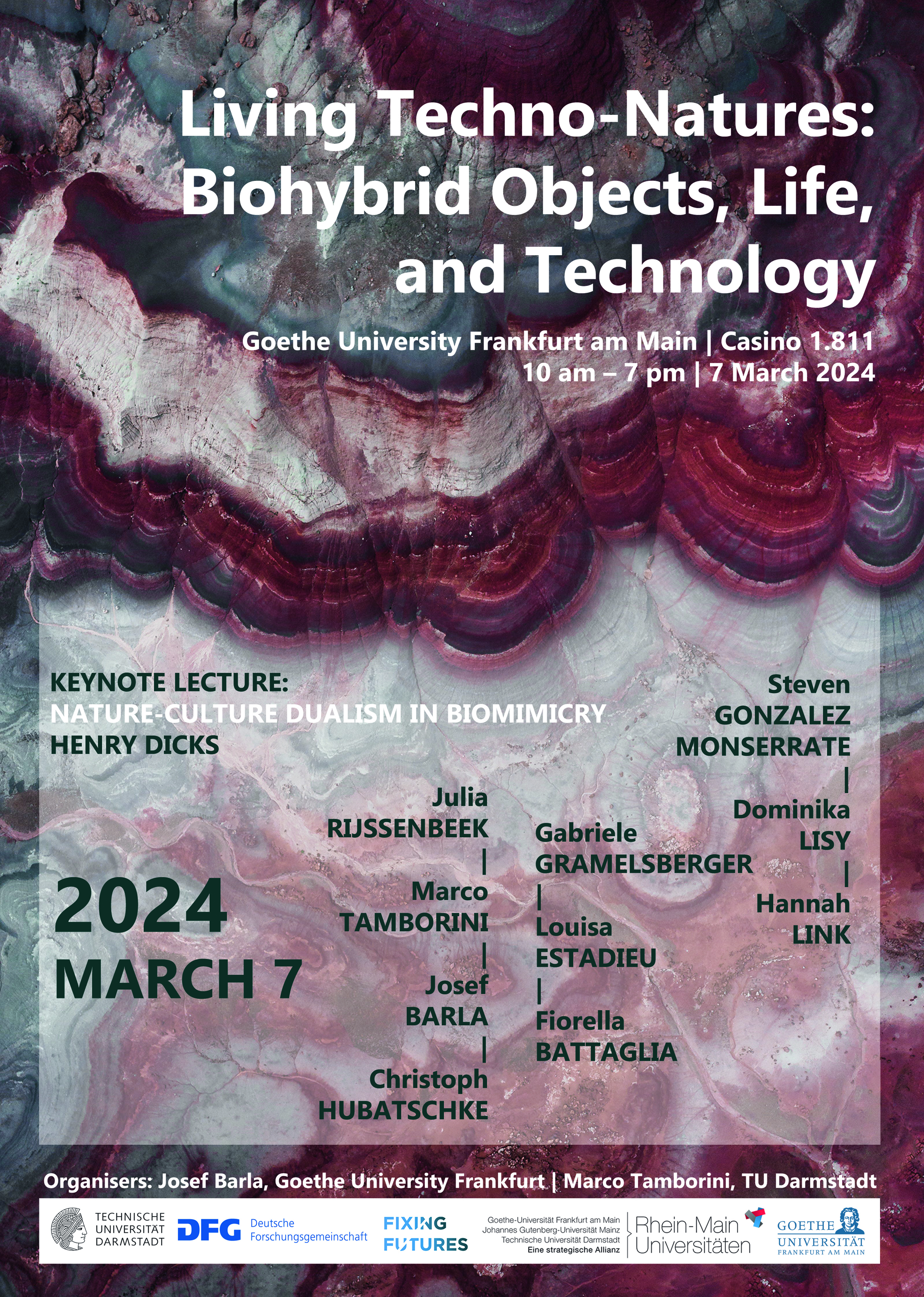
Raum: Seminarhaus 3.105
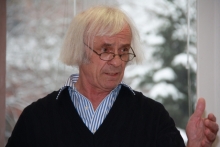
Nachruf für Privat-Dozent Dr. Wolfgang Schroedter
Anfang Dezember 2023 ist Wolfgang Schroedter verstorben, der fast seit einem Vierteljahrhundert
Privatdozent an unserem Fachbereich war. Er gehörte einer Generation von
Sozialwissenschaftler:innen an, die sozialpsychologisches Wissen und soziologische Expertise auf
originelle Weise miteinander verband und prägend war für die Frankfurter Geschichte der Soziologie.
Nach dem Studium der Soziologie (mit den Nebenfächern Psychologie, Pädagogik und
Politikwissenschaft) am Fachbereich Gesellschaftswissenschaften der Goethe-Universität promovierte
Wolfgang Schroedter 1979 bei Alfred Lorenzer. Zwanzig Jahre später habilitierte er sich am selben
Fachbereich und erhielt die Lehrbefugnis für das Fach Soziologie mit dem Schwerpunkt
Sozialpsychologie.
In den vergangenen Jahrzehnten hat er mit seinen Seminaren mit medizinsoziologischen und
sozialpsychologischen Themen entscheidend zur Bereicherung des Lehrangebots an unserem
Fachbereich beigetragen. Seine Studierenden und Kolleg:innen werden ihn und seine ungewöhnliche
Gabe, seine praktischen Erfahrungen im therapeutischen Bereich mit soziologischen Themen und
Fragestellungen zu verbinden, sehr vermissen. Mit Wolfgang Schroedter verliert der Fachbereich einen
wichtigen Vertreter der sozialpsychologisch informierten Soziologie, der immer ein offenes Ohr für die
Anliegen der Studierenden hatte und mit seiner wissenschaftlichen und therapeutischen Arbeit weit
über die Grenzen der Universität hinaus wirkte.
Kolloquium || Josef Barla || Thomas Lemke|| Goethe University (Frankfurt am Main) || Henning Laux - Leibniz Univesität Hannover || PEG 1. G 107
Wo? | Where?
Campus Westend – PEG-Gebäude 1.G 107
Theodor-W.-Adorno-Platz 6
60323 Frankfurt am Main
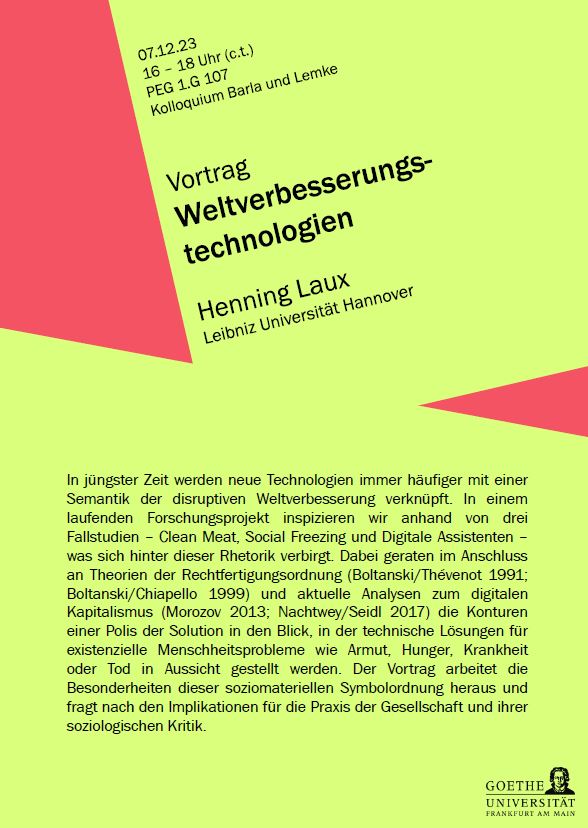
Kolloquium || Josef Barla || Thomas Lemke|| Goethe Universität (Frankfurt am Main) || Miguel Vatter Deakin Univeristy (Melbourne) || PEG 1. G 107
Wo?
Campus Westend – PEG-Gebäude 1.G 107
Theodor-W.-Adorno-Platz 6
60323 Frankfurt am Main
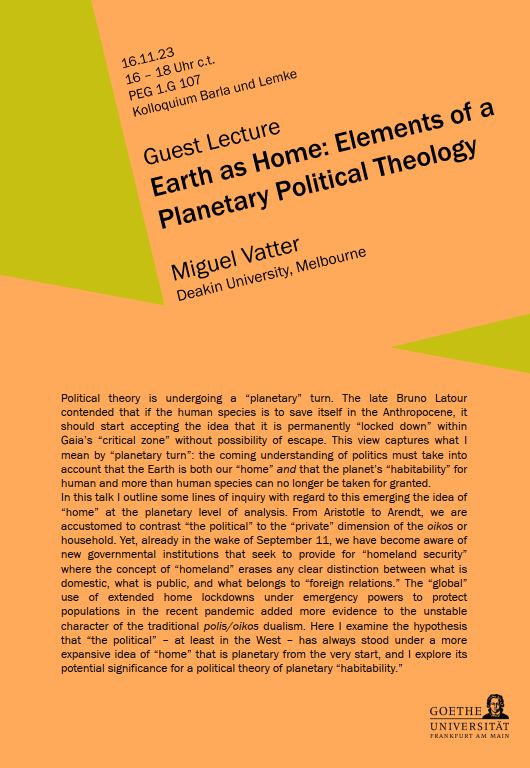
KONTAKT
Prof. Dr. Thomas Lemke
Goethe-Universität Frankfurt am Main
Fachbereich 03 Gesellschaftswissenschaften
Institut für Soziologie
Schwerpunkt Biotechnologie,
Natur und Gesellschaft
Besucheradresse
Theodor-W.-Adorno-Platz 6
Campus-Westend – PEG-Gebäude
Raum 3.G 027
60323 Frankfurt am Main
Postadresse
Campus Westend
PEG - Hauspostfach 31
60629 Frankfurt am Main
Tel. +49 69 798 36664
lemke@em.uni-frankfurt.de
KONTAKT
Office Management
Angelika Boese
Raum PEG 3.G 030
Tel. +49 69 798 36518
boese@soz.uni-frankfurt.de
- Aktuelles und Presse
- Pressemitteilungen
- Öffentliche Veranstaltungen
- Uni-Publikationen
- Aktuelles Jahrbuch
- UniReport
- Forschung Frankfurt
- Aktuelle Stellenangebote
- Frankfurter Kinder-Uni
- Internationales
- Outgoings
- Erasmus / LLP
- Goethe Welcome Centre (GWC)
- Refugees / Geflüchtete
- Erasmus +
- Sprachenzentrum oder Fremdsprachen
- Goethe Research Academy for Early Career Researchers
- Forschung
- Research Support
- Forschungsprojekte, Kooperationen, Infrastruktur
- Profilbereich Molecular & Translational Medicine
- Profilbereich Structure & Dynamics of Life
- Profilbereich Space, Time & Matter
- Profilbereich Sustainability & Biodiversity
- Profilbereich Orders & Transformations
- Profilbereich Universality & Diversity

